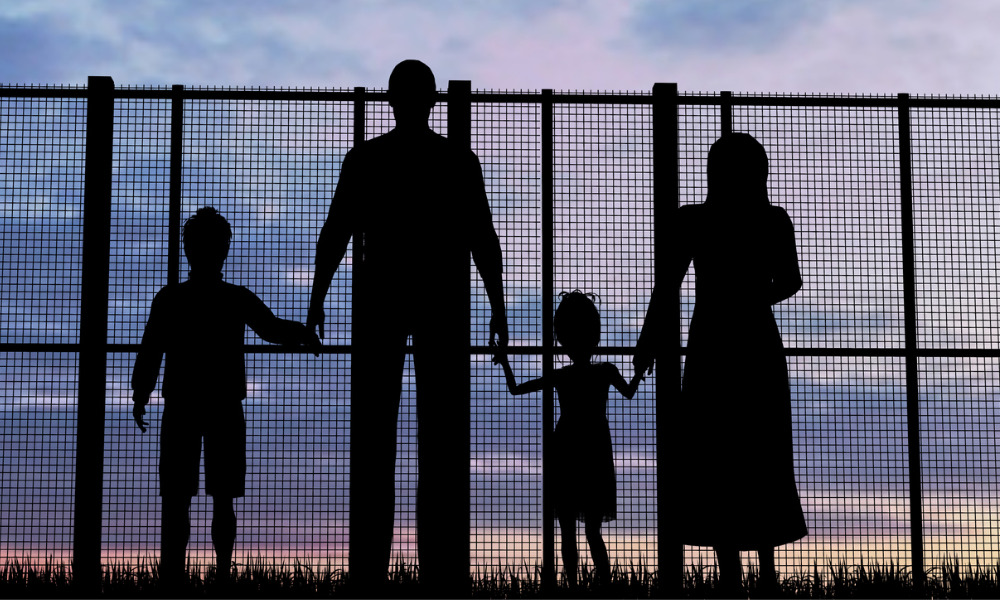Reinstate balanced prior policy limiting removals to serious inadmissibilities, association urges

The Canada Border Services Agency’s decision to recommence removals of all inadmissible foreign nationals in Canada is unilateral, unsound and prejudicial to public health, the Canadian Association of Refugee Lawyers has told the Minister of Public Safety and Emergency Preparedness.
In a letter dated Dec. 2, the Association called for the reversal of the new policy, which the Agency announced on Nov. 30, and for the reinstatement of the previous policy until Canada can more effectively control the COVID-19 pandemic and public health authorities recommend the resumption of international travel.
The prior policy of the Agency, which was implemented in March at the beginning of the pandemic, restricted removals to serious inadmissibilities, or those considered inadmissible for reasons of security, human rights violations, criminality or organized criminality, pursuant to s. 34 to s. 37 of the Immigration and Refugee Protection Act, SC 2001, c 27.
This policy is preferable, said the Association in its letter, because of the balance that it achieves between the protection of Canadians through permitting continued removals for serious inadmissibilities, and the protection of foreign nationals through the deferral of all other removals.
The Association questioned the timing of the decision to resume removals for all inadmissible foreign nationals, considering that Canada has been experiencing its highest recorded number of COVID-19 infections, with the highest single-day infection count and the highest daily death toll in nearly two months reported for Nov. 30, the day the CBSA announced its resumption of all removals.
“It is alarming – and puzzling – that CBSA would choose this moment to return to ‘business as usual’ in respect of removals,” wrote Maureen Silcoff, president of the Association, in the letter.
The Association said that the Agency has not mentioned a material change in circumstances that would justify the shift to a new policy, especially in this context of the “worst days of the pandemic.” The Association dismissed policy reasons identified by the Agency in its announcement such as “the emergence of viable vaccination options” that might be provided to deportees prior to removal, finding these reasons were not grounded in evidence.
Both the prime minister and Global Affairs Canada have issued recommendations recently against international travel, which they say remains unsafe for both Canadians and non-Canadians. Legally requiring the boarding of international flights, as well as the adoption of other traveling risks involved in resuming removals for all inadmissible foreign nationals, is dangerous to these deportees, particularly those of advanced age and with underlying health conditions, the Association said.
The removal of refugees should be conducted in tandem with allowing them to enter Canada, it said, or the situation becomes a “one-way ratchet in respect of asylum claimants – one in which the COVID-19 related risks of removing such individuals are ignored while the risks of permitting them to enter are unassailable.”
The new policy is not in accordance with the objectives of the Immigration and Refugee Protection Act and broader humanitarian values, the Association said. The policy was also not informed by consultation with external stakeholders and was made effective on the same day that it was announced, according to the Association.
The measures suggested by the Agency, which included appeals, judicial reviews and permanent resident applications on humanitarian and compassionate grounds, were not relevant and appropriate to the situation contemplated by the new policy, the Association said.
The only relevant recourse suggested by the Agency -- a deferral request -- are intended to address “highly particularized circumstances justifying a delay of a specific individual’s removal,” said the Association in its letter. As well, filing such deferral requests involves requirements such as affidavit evidence and legal submissions and, generally, the services of a lawyer, which may be too expensive for many deportees, the Association said.










